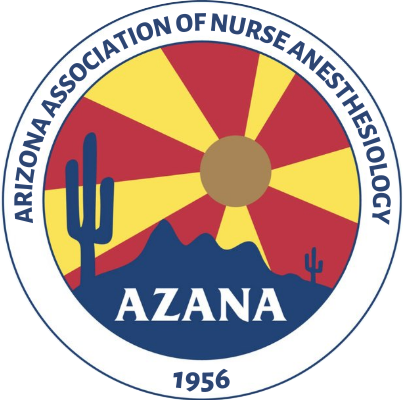AZANA Members:
Despite our best efforts- and certainly not without your support- SB1269 will not be proceeding out of committee this session. We appreciate your time and effort in helping us remove unnecessary language, and in promoting the education and clinical training of our RRNAs. This effort is not over, but for now, we must focus on bills still in committee that impact us directly.
HB2457, the bill permitting the licensure and practice of Certified Anesthesiologist Assistants (CAAs) in Arizona, is still very much alive. The bill has now been transferred out of the House Regulatory Affairs committee and into the House Education Committee. The bill’s sponsor, Representative Pingerelli, is the chair of this committee. The bill is on the agenda for hearing on Tuesday, February 14, 2023.
If you have not yet registered at azleg.gov for RTS (request to speak), please do so immediately. Instructions for both mobile and desktop applications are attached. Our lobbyists Kelsey Lundy and/or Jessie Armendt at Compass Strategies will activate your account at the Capitol. If you have already registered and have been activated at the Capitol, please make sure you have voted ‘Against’ this legislation. We must defeat this bill to protect your practice!
In addition to RTS (RTS Mobile Instructions and RTS Desktop Instructions), we encourage you to reach out to members of the House Education Committee directly by email and phone, voicing your opposition to HB2457. The members of the committee are:
Representative Beverly Pingerelli, Chair (bpingerelli@azleg.gov) (602) 926-3396
Representative David Marshall, Vice Chair (dmarshall@azleg.gov) (602) 926-3579
Representative David Cook (dcook@azleg.gov) (602) 926-5162
Representative Lupe Diaz (ldiaz@azleg.gov) (602) 926-4852
Representative Liz Harris (lharris@azleg.gov) (602) 926-4153
Representative Michelle Peña (mpena@azleg.gov) (602) 926-3696
Representative Jennifer Pawlik (jpawlik@azleg.gov) (602) 926-3193
Representative Nancy Gutierrez (ngutierrez@azleg.gov) (602) 926-4134
Representative Laura Terech (lterech@azleg.gov) (602) 926-3894
Representative Judy Schwiebert (jschwiebert@azleg.gov) (602) 926-3390
Key points of HB2457 include:
This bill would license certified anesthesiologist assistants (CAAs) and place no limit on their ratio of medical direction.
Unfortunately, as written, this bill is anti-competitive and would be very damaging for Arizona. Competition occurs both within and between the major professions. Given the significant overlap in scope of practice, for the specialty of anesthesiology, allowing physicians to have an assistant without authorizing that same assistant for CRNAs gives a clear competitive advantage from the government, upsetting the robust competitive healthcare services market we have in Arizona.
It is damaging for Arizona healthcare system because CAAs are not eligible to be involved in CRNA clinical education (only CRNAs and physicians – recognized experts in anesthesiology – are authorized to do so). As such, if a CAA is in an operating room providing care, a nurse anesthesia resident cannot be placed in that room – only compounding the shortage of clinical sites in Arizona.
Even though certified anesthesia assistants are essentially an unproven profession- compared to CRNAs and physician anesthesiologists- they are only able to practice in the highest-cost model (medical direction).
Only allowing physicians to supervise CAAs will do nothing to alleviate the anesthesia shortage in rural and underserved communities where CRNAs are the primary and sometimes sole providers.
If you would like to contribute to our continued legislative efforts, please click here. If you are not a member of the AANA/AZANA, please click here to join us as we fight for all CRNAs in Arizona.
We understand how important your time is, and appreciate this uncertainty in a rapidly changing legislative session. Know that we are here to support you, fight for all of you, and ensure the future of nurse anesthesiology practice in Arizona!
Yours in service,
C. Reggie Elam, PhD, DNAP, CRNA
President
Arizona Association of Nurse Anesthesiology

